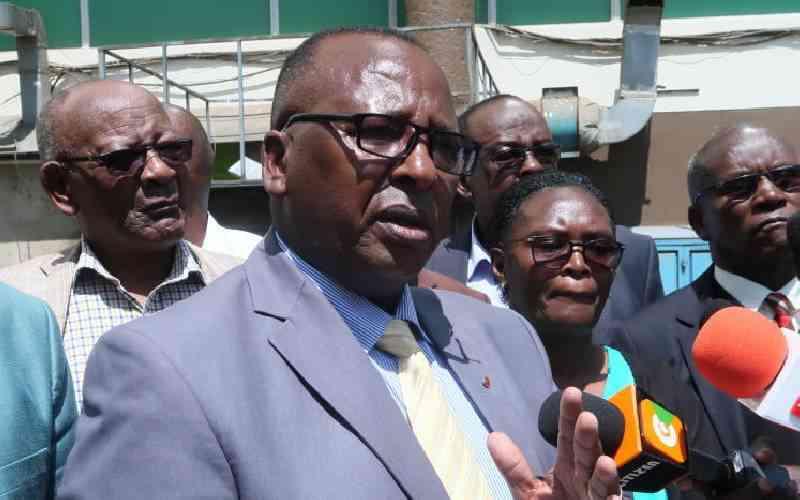Through an umbrella body, the National Coffee Co-operatives Union, the farmers also want Capital Markets Authority to oversee their representation at the board of NCE, saying their absence is partly to blame for the low returns to the coffee producer. [Wilberforce Okwiri, Standard]
Coffee farmers have appealed to the Capital Markets Authority (CMA) to get rid of “cartels” at the Nairobi Coffee Exchange (NCE) that they say have been blocking their participation at the auction.
The farmers said that small-scale producers have been locked out of the exchange, even when a number of them have been licensed to participate.
Through an umbrella body, the National Coffee Co-operatives Union (Naccu), the farmers also want CMA to oversee their representation at the board of NCE, saying their absence is partly to blame for the low returns to the coffee producer.
“We would like to request CMA to urgently rid the corrupt, cartel behaviour at Nairobi Coffee Exchange and introduce transparency in this institution such that even a small-scale farmer and co-operative can freely trade their coffee and walk home with money in their pocket,” said Naccu Chairman Francis Ngone during press briefing on Tuesday.
Six Naccu members had been licensed to trade at the exchange but have been locked out, he said.
“We have six of our member co-operatives unions, which have been rigorously vetted and licensed by CMA to trade at Nairobi Coffee Exchange. These should be allowed to enter the market without any further delays.”
Changes in coffee laws in 2019 gave CMA the mandate to oversee and regulate coffee trading at NCE, which Naccu noted is expected to bring sanity and fair-trading practice at the auction.
Machakos, Meru, Kipkelion, Mt Elgon, Murang’a and Embu coffee co-operative unions are the cooperatives licensed to participate at the auction.
“We remind CMA to look into the representation of farmers at the board of Nairobi Coffee Exchange as per Attorney General of the Republic of Kenya advisory on September 20, 2021 where the AG noted that small-scale farmers were not well represented in the exchange,” said Ngone.
Naccu also lauded the recent changes that President William Ruto made in the management of coffee within his Cabinet.
In Executive Order Number One of 2023, the President placed coffee sub-sector reforms under the Office of the Deputy President Rigathi Gachagua, which means that the DP will oversee implementation of recommendations of the National Task Force on Coffee Sub-Sector Reforms appointed in 2016 by former president Uhuru Kenyatta.
Naccu said DP Gachagua has knowledge of the industry including challenges that the smallholders face including low returns for their produce.
“We wish to thank President Ruto for taking up our cry and giving the docket of coffee reforms to the Deputy President Rigathi Gachagua, who is a child of a coffee farmer and a product of coffee,” Naccu said in a statement.
“We are confident that the Deputy President understands the challenges in coffee sector as himself he has observed his local factory collapse and livelihoods in his local village and all of ours lost.”
Naccu also raised concerns about the decline in coffee prices at the auction in recent months dropped, with the country’s top grade coffee Kenya AA selling in the range of $200 (Sh24,000) per 50 kilogramme from nearly $400 (Sh48,000) for the same quantity in 2021.
The sector’s reforms are expected to enable the industry improve its fortunes that have for years been dwindling.
Coffee production stood at 34,500 tonnes in 2021, according to data by the Kenya National Bureau of Statistics, down fromover 140,000 tonnes that the sector produced in its glory days in the late 1980s.





















Discussion about this post